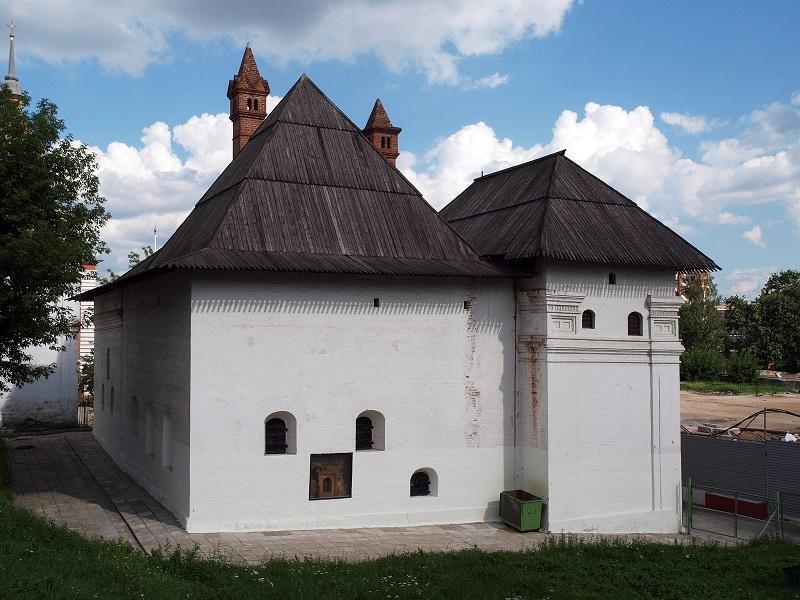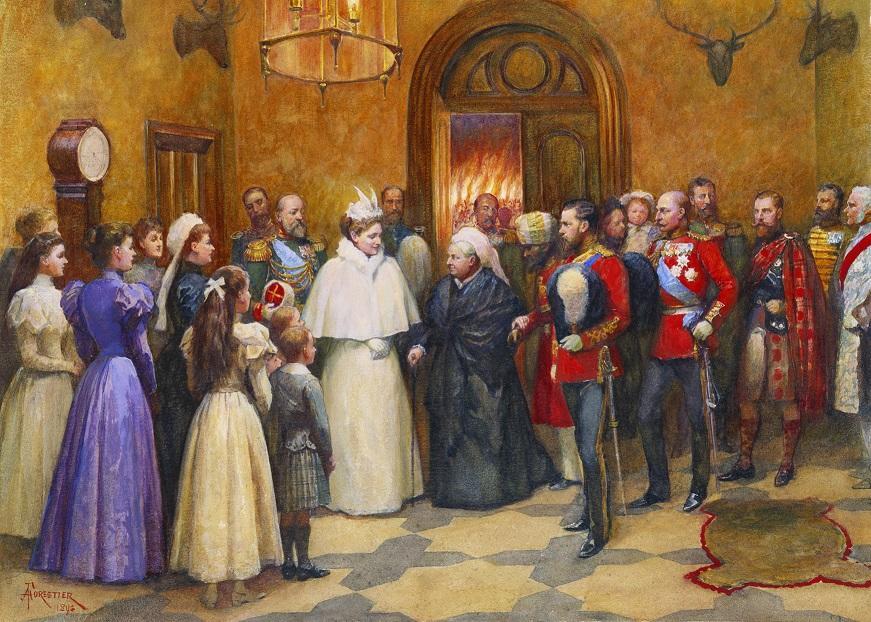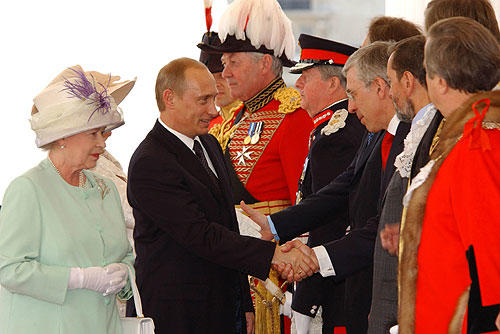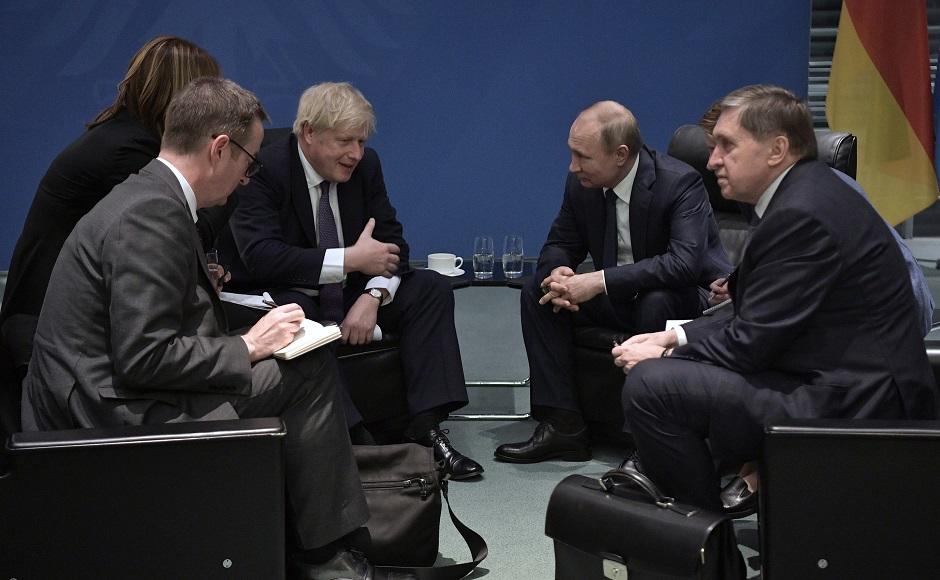One aspect of the UK-Russia connection recently came to light in the worst possible way when Chelsea Club owner Roman Abramovich, outed as a Russian oligarch, had all of his assets frozen. He was denied the opportunity to sell the Premier League football club before harsh sanctions were imposed as a result of the war in Ukraine.
Mr Abramovich's fall from grace was but the first in a long line of tumbling dominos. Soon, every newspaper in the country was expounding on all the London properties owned by Russian billionaires and the businesses those oligarchs bankrolled and all of the other ways that Russians had enriched themselves at the British people's expense.
The outrage is understandable but it's nevertheless a bit of a kneejerk reaction and a tad unfair when you consider the tit-for-tat offences both sides have perpetrated.
| The volley of recent infractions: |
|---|
| 2014: Russia annexes Crimea; UK (and US) lead the condemnation. |
| In the wake of Crimea's annexation, UK levels punishing economic sanctions on Russia. |
| 2016: The British public votes to Brexit; British leadership accuses Russia of influencing the referendum. |
| 2017: Russian Ambassador to the UK states that relations are at an all-time low. |
| 2018: the Skripal and other poisonings cause relations to deteriorate further. |
| 2021: the Black Sea incident - a confrontation between HMS Defender and Russian forces. |
And besides, UK-Russian relations go back centuries and both countries have enriched themselves over all that time.

Initial Relations
Mid-16th Century, English explorer Richard Chancellor was about to realise his dream of finding a way to Asia via an arctic route. The Company of Merchant Adventurers were equally excited as they hoped to find new markets for woollen cloth made in England. The fleet set sail under Sir Hugh Willoughby's command, with Chancellor as chief navigator (and second in command).
Deep into the journey, two of the three ships and all onboard met an unfortunate end. Chancellor duly recorded Captain Willoughby's finds and sailed on, eventually landing at the Dvina River's mouth.

Ivan IV Vasilyevich, better known to us as Ivan the Terrible, was exalted to receive his first foreign guest. He spared no expense in welcoming the traveller - but he stopped short of meeting his dignified guest halfway. After a 600-mile journey in a horse-drawn sledge, Mr Chancellor was greeted warmly and given sumptuous quarters within the Tsar's palace.
The visit concluded with letters of trade from the Russian tsar.
When Mr Chancellor returned to England some two years later, Mary I was on the throne. Despite her having ordered the execution of his patron, the Duke of Northumberland, for backing Lady Jane Grey, she bore the explorer no ill will. Particularly not when she discovered the trade agreement.
Mary I sent him back to Russia with a full cargo within a year.
Relations in the 19th Century
England and Russia's relationship grew more complicated with time. As other navies and explorers made their way to Russia, with or without goods to sell, the tsar had his pick of allies and trading partners. France was one such alliance, albeit a reluctant one.
Russia suffered stunning defeats during the Napoleonic Wars, which forced the Russian empire into the Continental System established by Napoleon Bonaparte. This system forbade trade with Britain, making all such previously-established agreements null and void.
Now on opposite sides of the battlefield, neither Russian nor English troops fought very hard and, eventually, weary of Napoleon and all his wars, they resumed their alliance and trade relationship. Britain supported Russia materially and financially, and both countries pledged to keep 150,000 men on the battlefield until the French general was finally defeated.
Finally done with war, England and Russia played pivotal roles at the Congress of Vienna (1814-15), which guaranteed 20 years of peace in Europe. However, there was much they didn't agree on, such as Russia's designs on the former Turkish Empire.

From the 20th Century On
As hinted at above, throughout the long English-Russian alliance we find trouble liberally sprinkled. Mostly easily settled spats but a few rather large disturbances.
We have to remember that expansion was the name of the game for a few centuries. Kingdom and empires gobbled up territory and, once everything within reach had been claimed, they fought each other for power, riches and lands. So it was in East Asia.
Russia and the British monarchy had, by now, become frenemies and, when it came to China, things heated up fast.
Russia had begun building its Trans-Siberian Railway to gain easy access to the far east but Britain already had a foothold in Hong Kong. Also, the Opium Wars gave Britain both history and territorial knowledge of southern China. Russia finally made headway into northern China just as the Boxer Rebellion got underway, that mass expulsion of foreigners forced England and Russia to align themselves again to protect their interests.
By the way, you should read more about China's relations with Russia.
The UK-Russian alliance held as the world slid into its first World War, and all the way until Lenin seized power. At that point, Russia ended trade and diplomatic relations and refused to pay back its debts. A few years later, trade relations were restored but the United Kingdom never regained the level of trust their centuries of the diplomatic and economic alliance had fostered.
After Winston Churchill pronounced the Soviet occupation of Eastern Europe to be "... an iron curtain" that had descended on the continent, relations remained frosty. Spying and poisonings ensued on British soil and, when Dame Margaret Thatcher became Prime Minister, the British government aggressively pursued an anti-Communist agenda.
However, when Leader Gorbachev came into power, UK-Russian relations thawed significantly, so much so that, nearly 10 years later, in 1994, The Queen paid Moscow a state visit. She is the first British monarch to do so.
UK-Russian Relations Today
That détente didn't last long. When Mr Putin was elected in 2000, things began to grow tense again. The dispute centred around the UK's unwillingness to turn over self-exiled Russian businessmen and political prisoners.
Russia then began a series of provocative acts, from military flyovers that sent the Royal Air Force scrambling to intercept them to poisoning Russian citizens on British soil.
Late in 2006, the relationship fractured further as former FSB agent Alexander Litvinenko was treated to a lethal dose of polonium in a cup of tea. Russia refused Britain's request to extradite his assailant, stating that they don't extradite their citizens to foreign soil.
Further diplomatic spats include:
- The UK and Russia each expelled four of the other country's diplomats because of the Litvinenko poisoning
- In 2007, the Crown Prosecution Service declined to send Boris Berezovsky back to Russia for prosecution. The Kremlin cites that decision as a 'disturbing moment' in UK-Russia relations.
- In 2008, Russia accused two British Council offices of tax violations and ordered them to cease operations. Russian officials then engaged in an intimidation campaign until the offices closed, after which the Russian authorities declared the charges against the British offices invalid.
- That same year, during the Russia-Georgia War, the UK declared itself for Georgia, a proclamation that infuriated Vladimir Putin.
- the 2009 decision to allow the Russian Orthodox Church property in the UK to remain affiliated with Moscow rather than be transferred to the Eastern Orthodox Church. Many saw this move as appeasing Russia, not based on any legal grounding.
- That same year, after a visit to Moscow, Foreign Secretary Miliband officially declares UK and Russia's relationship as "mutually disrespectful".

The list of offences continues to grow on both sides. Russia's 2014 takeover of Crimea compelled the UK to action. The imposed sanctions as a result of that annexation infuriated Russia, as did the as-yet unproven accusations of Russian Brexit meddling. The Novichok poisonings on UK soil outraged Britons, leaving them fearful of Russian agents operating with impunity in their country.
And then, there was that embarrassing discovery of top-secret documents found at a bus stop in Kent in 2021. They detailed UK's awareness that Russia might see the manoeuvres undertaken by HMS Defender so close to Crimea as provocative and how they should respond.
Finally, we come to Russia's attack on Ukraine. There was no question which side the UK would take. Standing firm with their NATO allies, British leaders imposed swift sanctions and uttered damning condemnations. As far as Vladimir Putin is concerned, anyone standing with the US-led NATO is an enemy; US and Russian ties had disintegrated long before.
One month after Russia's incursion, Mr Putin ominously declared UK Prime Minister Johnson an enemy of the Russian people.
Today, territory and population-wise, Russia is far bigger than the United Kingdom but at one time, the British Empire dwarfed the Russian one, in wealth, territory and military power. Economically, Russia today dwarfs the United Kingdom, particularly after Brexit. In terms of military power, Russia has the UK outgunned but, as Great Britain is a NATO member, we could argue the UK's firepower is far greater than Russia's.
Jokey nicknames like Moscow-on-the-Thames and Londongrad aside, the Office of National Statistics estimated in 2020 that only around 73,000 native-born Russians made their home in the UK. By contrast, fewer than 2,000 Briton make their home in Russia.
Reflecting on Richard Chancellor's observations of Russia's capital city, centuries ago, that Moscow was large but primitively built, we might infer that Briton's sentiment towards Russia has never progressed beyond its views of that country being little more than a vassal state - and an unruly one, at that.
That unspoken sentiment underpins UK-Russian relations.
Now, discover the extent of Russia's beef with NATO.
















